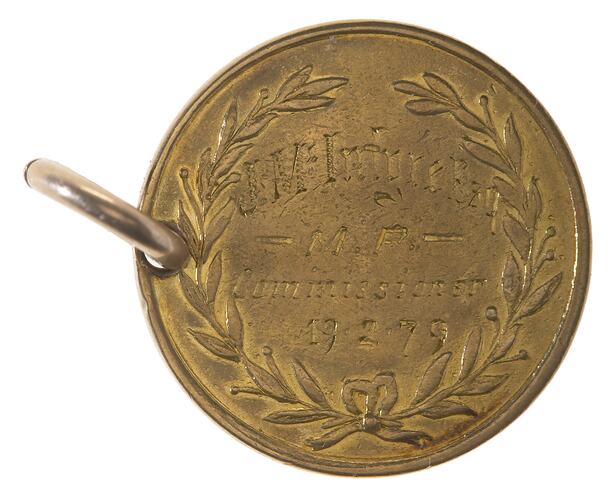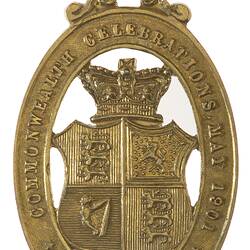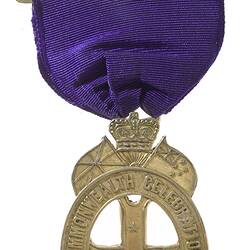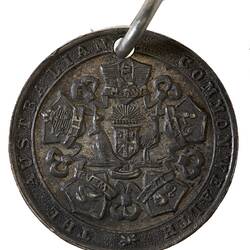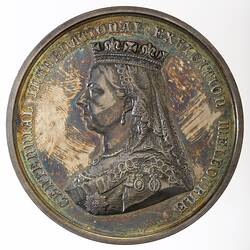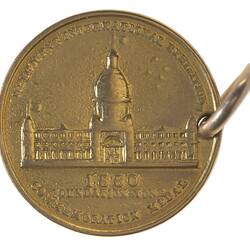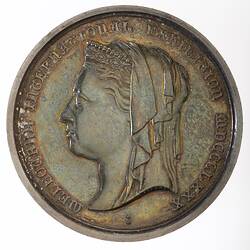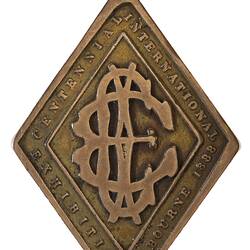Sir John McIntyre, politician and businessman, was born in Glasgow, Scotland in 1832. He was educated at the South End Academy and began a medical course at the University of Glasgow. He was lured away by the reports of gold in Victoria, and in 1852 arrived in Portland. He worked several mining claims successfully, and settled at Bendigo, where in 1855 he set up an apothecary and gold-buying business with Dr James Eadie. He also married Eadie's sister-in-law Jeanne Grant.
In the early 1850s McIntyre rallied against conditions on the goldfields and supported the Red Ribbon Movement (objecting to the level of gold licences and arbitrary government). In 1856 he was elected to the Sandhurst Court, that dealt with mining matters, and in 1858 was elected to its successor, the Mining Board. He framed the first code of local mining by-laws and served as president of the first conference of mining board representatives in Melbourne. His mining interests were profitable, and he travelled overseas several times to procure foreign capital for local mines.
In 1859 McIntyre was elected to the Sandhurst Municipal Council, but instead went to Europe with his family. His wife died there in 1861, leaving him with three young sons to raise. On their return in 1862 he rejoined the Council, became Chairman in 1863 and later Mayor. As Mayor he took a special interest in the local hospital, was a territorial magistrate and a guardian of minors in the Bendigo area. McIntyre also hosted the disastrous visit of the Prince of Wales in 1867, at which a large model of Alfred's ship Galatea, the centrepiece for a fireworks display, caught fire when three boys were climbing on it. They were trapped under the sails and burned to death. Two days later Bendigo returned to its programme with a ball in the new Alfred Hall, named after the Prince. It was a timber building, decorated with painted calico sheets. When the gas lamps were lit the calico caught fire and the building burnt down. The ball was held in the Town Hall instead.
McIntyre married his wife's sister Isabella in 1875, during a trying period in his life as he unsuccessfully attempted to enter parliament. In 1877 he finally won the seat of Sandhurst. He was an outspoken supporter of free trade and actively opposed protection. He lost his seat in June 1880, but in early 1881 won the Maldon by-election. From January 1893 to September 1894 he served as president of the Board of Lands and Works, and was commissioner of crown lands and survey. McIntyre was known as a popular and energetic administrator, and was an honorary colonel in the Scottish Regiment.
McIntyre represented Victoria at the 1876 Philadelphia Centennial Exhibition, partly to observe arrangements in order to assist Victoria to plan its own centennial celebrations. In 1880 and 1888 he was an ex-officio Commissioner for the Melbourne International Exhibition (awarded medal NU 17924) and Centennial International Exhibition in Melbourne respectively (received medal NU 17925 the following year).
McIntyre finally lost his seat in 1902, the same year his wife Isabella died. He died himself not long afterwards, at his home in Brighton, on 18 January 1904. He was buried in Bendigo.
References:
Australian Dictionary of Biography website http://adbonline.anu.edu.au/adbonline.htm
More Information
-
Keywords
-
Localities
Bendigo, Victoria, Australia, Melbourne, Victoria, Australia
-
Authors
-
Article types
